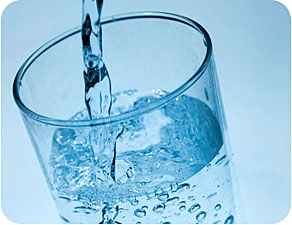The following content was provided by Registered Dietitian, Amanda Cassell.
I can remember it like it was yesterday. A warm and humid day in April, sweat running down my face, taking each step in stride and longing for the finish line of the Country Music Marathon. However, if you were to search for my results from that year, they would not exist.
Before I continue, let me introduce myself first. I recently joined The Core Diet and QT2 Systems as a Registered Dietitian, although I have been practicing since 2002. I'm a 2x Ironman finisher, 12x marathon runner but I've made mistakes too! Keep reading :)
You see, I was right on pace to qualify for my first Boston Marathon. I had trained extremely hard, putting in the miles needed for qualification. The next thing I know, I am sitting on the curb, at Mile 26, only .2 miles from the finish line. Without realizing it, I became disoriented from dehydration and heard my Garmin errantly beep to signify that I had finished 26.2 miles. I was so disoriented in fact, that when I heard the watch beep, I sat down right there at mile 26, thinking I had actually crossed the finish line. After a trip to the ER and IV fluids, I was back to normal; I was heartbroken, but thankful to God that I was all right. Talk about being so close to something you can smell it! The sad thing is, this all occurred due to inadequate fluids. Twelve marathons and two Ironman triathlons later, I can now look back at that memory and laugh. Do you think I learned my lesson? You better believe it!
Don't take basic H2O for granted. Carbohydrates may be the premium fuel for your energy tank, but even an adequate number of carbohydrates is useless without the proper hydration.
Water is a miracle liquid. Take a look at yourself. You are a mixture of water, protein, and molecules mixed together to create the physical you. Two-thirds of you is water. Muscles are 75 percent water. According to Alice Kavounas, author of Water Pure Therapy, "you need water to enable your body to keep eliminating toxic substances, to produce digestive enzymes, maintain healthy skin, hair and organs, and to help your body absorb essential vitamins, minerals, and natural sugars. Water also regulates your body temperature, cooling you down by evaporating through your skin."
Even on a cold winter day, your body will use and lose about two liters of water. Imagine how much greater that amount is on the hottest summer day. Athletes and active people require much more than two liters of water every day. The key is not waiting until you are thirsty to hydrate. If you feel thirsty, then it is already too late. The feeling of thirst is governed by the hypothalamus in the brain. It reads salt levels in the body. When you are dehydrated, the salt concentration in your body is altered. That triggers your thirst alarm.
Signs of dehydration in the body can include: fatigue, irritability, headache, flushed skin, constipation, high cholesterol, water retention, disorientation, and blurred vision. You can monitor your hydration status by checking the color and quantity of your urine. Clear or lemonade-colored urine reflects adequate fluid intake, while apple-juice or darker-colored urine, or a smaller volume of urine, indicates that you need to increase your fluid intake. You should aim for urination of at least four full bladders every day. Remember, just a 2% dehydration rate (3 pound loss for a 150lb male) can impact training and racing performance.
So, what are the steps to ensure that you are staying hydrated? Most people have heard the oft-quoted recommendation to consume eight 8-ounce cups of fluid daily, mainly in the form of water. Because of the large variations in water needs among individuals, The Food and Nutrition Board of the Institute of Medicine established Adequate Intake levels of 130 ounces, or 16 cups daily for men and 95 ounces, or 12 cups for women. Of course, as Core Diet dietitians, we would like for you to aim for drinking approximately ½ of your body weight in ounces. Our recommendation is more individualized, as we all have different needs! A 225-pound male would certainly need more fluids than the 150-pound male, right? For example, if you weigh 140 pounds, your estimated daily intake of water would be around 65 - 75 ounces per day. But this is just your baseline - in addition, you need to replace what you sweat out during workouts. And remember, those big cups of the antioxidant-filled green tea counts toward your daily requirement!
Individuals can monitor their sweat rate to better determine their hydration status as well as help estimate sodium loss. To make certain you are getting the proper amount of fluids daily, especially in the summer, an athlete can perform a sweat test. This test will give you a clear idea of your of much fluid and sodium you need, and therefore a race fueling plan can be established that includes fluid and sodium replacement, as well your optimal carbohydrate needs based on individual body composition. And remember to train with a sports drink, not water! You need to train the gut just as you train the cardiovascular system.
So, don't learn the lesson of hydration the hard way, like I did. Drink up this summer and keep that body hydrated!
~ Amanda















Comments